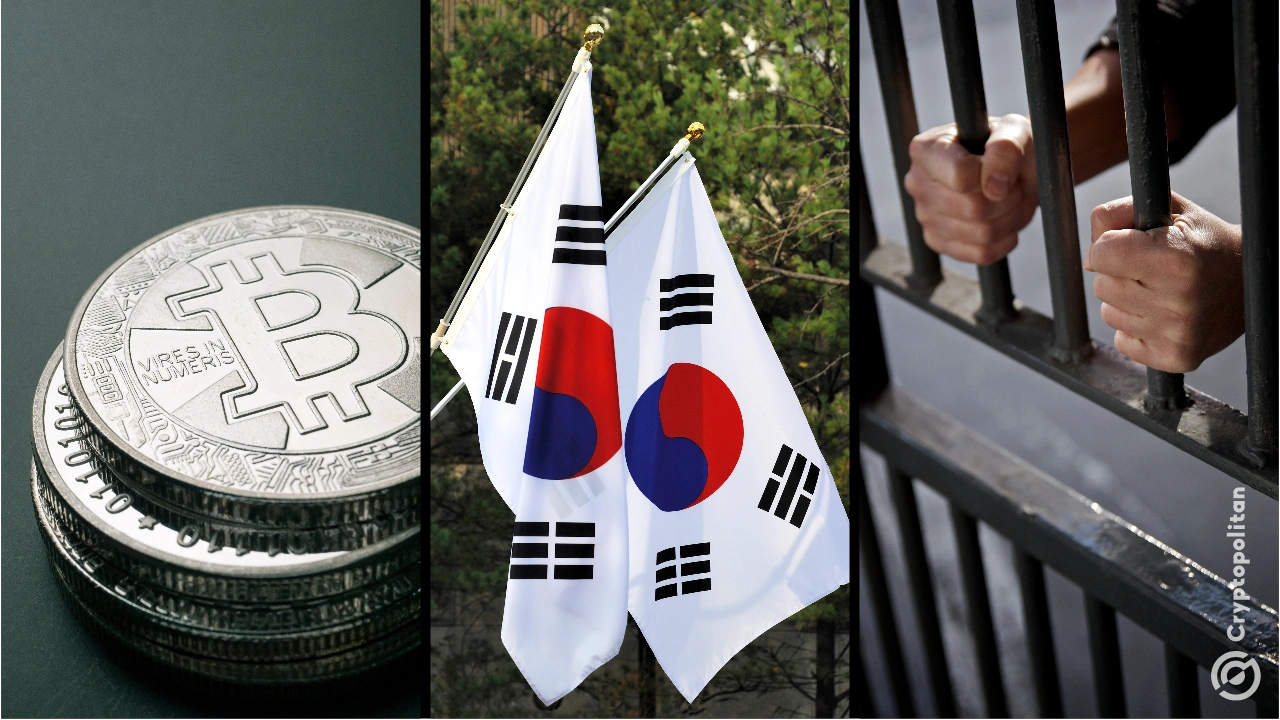
A South Korean lawmaker has fallen from grace, sentenced to six months in prison for hiding $7.5 million worth of crypto.
Kim Nam-kook, a former Democratic Party member, reportedly manipulated his asset declarations during his tenure in the National Assembly to cover up the fortune he amassed from crypto trading.
During hearings at the Seoul Southern District Court, prosecutors accused him of deliberately transferring coins into bank deposits and then back into crypto to misrepresent his finances.
Judge Jeong Woo-yong, presiding over the 9th Criminal Division, heard the case and handed down the prison term, branding the concealment an intentional obstruction of official duties.
Kim’s deception started with his 2021 property declaration. He reported his total assets as 1.2 billion won ($900,000) but conveniently left out the 9.9 billion won ($7.5 million) in cryptocurrency stashed in his accounts.
The next year, he did the same thing, hiding 990 million won ($750,000) in coin deposits. “The defendant intended not to declare the coins he owned,” the prosecution said in court. They further explained that his actions obstructed the ethics committee from conducting accurate evaluations.
By moving his crypto holdings between bank accounts and digital wallets, Kim made it nearly impossible to track his actual wealth.
South Korea’s crypto explosion
South Korea has one of the world’s most active crypto markets, where digital assets rival stocks in popularity. The country’s love affair with crypto started as early as 2013, when exchanges like Korbit and Bithumb began operating.
By 2017, South Korea was deep into crypto fever, with around 10% of the population investing in Bitcoin and other tokens. The “kimchi premium” phenomenon emerged, with local crypto prices soaring 20-40% above global averages.
But the boom came with risks, forcing the government to act. In 2017, regulators banned Initial Coin Offerings (ICOs), citing concerns over scams and speculative bubbles.
The crash of 2018 further spurred the implementation of stricter policies, including real-name trading systems requiring exchange users to verify their identities through bank accounts.
In 2021, South Korea took its crypto regulations up a notch. A new law required Virtual Asset Service Providers (VASPs) to register with the Financial Intelligence Unit (FIU), ensuring compliance with anti-money laundering rules.
Despite its regulatory grip tightening, South Korea remains a crypto powerhouse. Recent trading data proves this. By December 2024, daily crypto trading volumes reached $18 billion, surpassing the stock market by 22%.
Exchanges like FameEX, Upbit, and OKX dominate the scene, handling billions in transactions daily. FameEX alone reported $8.7 billion in trades on a single day in November.
The government, however, continues to wrestle with how to tax this market. A planned 20% capital gains tax on crypto profits was supposed to go live in January 2025.
But facing public backlash and concerns over stifling investment, lawmakers postponed it until 2027. The delay buys time for debates on balancing regulation with market growth.
Land a High-Paying Web3 Job in 90 Days: The Ultimate Roadmap










